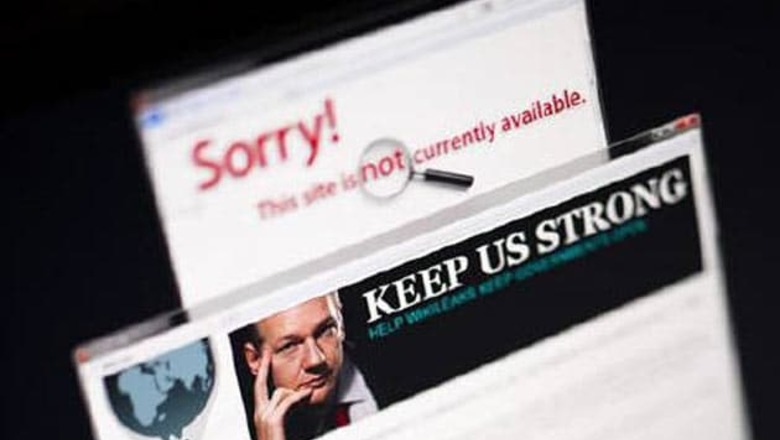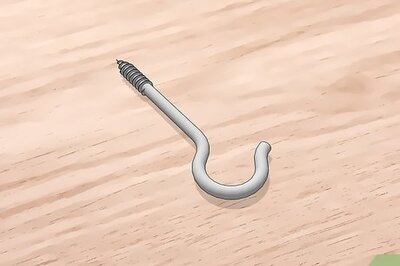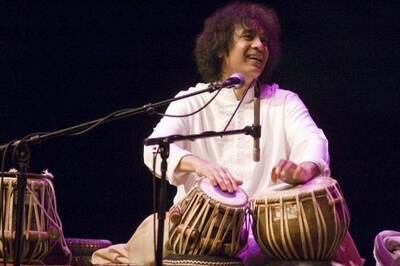
views
London: WikiLeaks published more details of sites around the globe that the United States considers vital to its interests, prompting strong criticism that the website is helping militants identify sensitive targets for attack.
The details are part of 250,000 diplomatic cables obtained and being made public by the website.
The list begins with a cobalt mine in Kinshasa, Congo and refers to various locations in Europe where drug companies produce insulin, treatment for snake bites and foot and mouth vaccines.
In the Middle East, it notes that Qatar will be the largest source of imported liquefied natural gas (LNG) by 2012 and also refers to the Abqaiq facility in Saudi Arabia, the largest crude oil process and stabilization plant in the world.
Al Qaeda mounted an unsuccessful attack on Abqaiq in 2006, and there were warnings that the WikiLeaks cable setting out so many sensitive targets could help militants.
The release of the information drew strong condemnation from the United States and the United Kingdom.
"Let me condemn in the strongest terms the leaks of information" about the sites, U.S. Attorney General Eric Holder told reporters in Washington. "The American people themselves have been put at risk by these actions that I believe are arrogant, misguided and ultimately do not help in any way."
Holder also said the Obama administration was considering using laws in addition to the U.S. Espionage Act to possibly prosecute for the release of the information.
The State Department called the release "irresponsible" and warned that such information about critical infrastructure supporting the U.S. economy and other countries could play into the hands of al Qaeda.
"Information is classified for good reason, most especially information involving critical infrastructure that supports our economy and those of other countries," State Department spokesman PJ Crowley said in an emailed statement.
"(WikiLeaks founder) Julian Assange has released what amounts to a targeting list that will be of interest to groups like al Qaeda," Crowley said.
"Reprehensible"
British Foreign Secretary William Hague called the publication of the list "particularly reprehensible."
"There is great concern of course about disclosing a list of targets that could be of use to terrorists or saboteurs," he told BBC radio. "I think it is absolutely reprehensible the publication is carried out without regard to wider concerns of security, the security of millions of people."
John J. LeBeau, a former CIA officer who teaches security studies at the George C. Marshall Center in Germany, said the list "might put ideas into jihadist heads as to what to profitably target."
"The real story here though, I think, is that putting this type of material online makes clear that WikiLeaks does not care about the consequences of its actions," he told Reuters.
"If the leaks complicate the security posture of the U.S., or the West in general, WikiLeaks is indifferent."
Professor Richard Aldrich of Warwick University in central England said it had the potential to help militants find targets in energy security.
"We're pointing out to them how they should change our behavior to hurt us more," he told Reuters.
"This document has been given very wide currency. It's improbable to think that the terrorists are not taking notice."
The cable sets out details of facilities whose loss could impact the public health, economic or national security of the United States. It was drawn up after the State Department last year asked U.S. missions abroad for a list of such sites.
It refers to places where undersea communications cables reach land and energy routes including the Baku-Tbilisi-Ceyhan oil pipeline which runs from Azerbaijan to Turkey.
Papers stayed away
"While we're not commenting on specific details in the stolen documents, a list of critical infrastructure would certainly fall into the category of damaging material that provides our adversaries with valuable information," U.S. military spokesman Colonel David Lapan said.
"This is one of many reasons why we believe WikiLeaks' actions are irresponsible and dangerous," Lapan said.
Two news organizations involved in the initial publication of stories based on the WikiLeaks cache of State Department documents did not publish stories about the cable listing sensitive infrastructure sites overseas.
Neither Britain's The Guardian nor The New York Times mentioned the cable in their coverage although it was included in a WikiLeaks document dump to them months ago.
Guardian Editor Alan Rusbridger told Reuters his staff made a conscious decision not to run a story about the cable or link to it because they were uneasy about its content.
"We're comfortable not to have done this one," he said.
A person familiar with the views of other journalists who had early access to the cable said that the view among key reporters was that the document contained little information of news value, but at the same time had information that could be quite useful to militants.
Bill Keller, executive editor of the New York Times, said that while his paper had received the cable some time ago, his reporting staff did not "focus on the cable until it popped up in the British press today." He said the cable did not "fit neatly into any" of the "thematic boxes" that Times journalists had chosen for organizing coverage of the massive cache.
Keller said however that had they paid more attention to it earlier, "I'm sure we would have deemed it unfit to print."
He said the newspaper would have decided the material was not appropriate to be written about for two reasons: that "nothing in it was particularly new," and because the contents of the cable "could be taken as an invitation to terrorists."




















Comments
0 comment